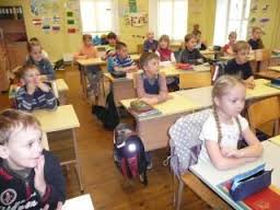Rusia/Diciembre de 2016/Fuente: The Baltic Course
RESUMEN: Nos faltan varios elementos en la enseñanza del idioma ruso ahora – no hay sistema, ni gente ni élite académica. La reproducción de los profesores para comenzar a enseñar el ruso es efectivamente inexistente «, dijo Kolvart, responsable de educación, deportes y asuntos juveniles en el gobierno de la ciudad de Tallin. «Lo que está sucediendo en la educación de la lengua rusa ahora se puede describir definitivamente con la palabra regresión», dijo Kolvart, vicepresidente del Partido del Centro. Dijo que las dificultades existen en la escuela secundaria, donde un requisito está en vigor desde 2012 que al menos el 60% de los temas deben ser enseñados en estonio. Como resultado, los profesores rusos deben enseñar temas complejos en estonio en clase.
«We are lacking several elements in Russian language education now – there is no system, no people and no academic elite. The reproduction of teachers to start teaching Russian is effectively non-existent,» said Kolvart, who is responsible for education, sports and youth affairs in the Tallinn city government.
«What is happening in Russian language education now can be definitely described with the word regression,» said Kolvart, deputy chairman of the Center Party.
He said difficulties exist in the high school stage, where a requirement is in effect since 2012 that at least 60% of subjects must be taught in Estonian. As a result, Russian teachers must teach complex subjects in Estonian in class.
Kolvart said that the new Estonian government led by Center Party chairman Juri Ratas that was sworn in last week is ready to ease these requirements. The government is prepared to review the requests to this effect filed by the school boards and municipalities, he said.
«We will look at each case separately, there can be no formal approach to this. Legally, this means an application from the school board, readiness of high schools and teachers,» Kolvart told Interfax. He said that simultaneously other means have to be sought to enable pupils to master Estonian.
«Our promise is to preserve Russian language high school education on the one hand and at the same time to organize teaching of Estonian at a higher level,» Kolvart said.
The Riigikogu in 2010 adopted a Basic Schools and Upper Secondary Schools Act which requires that the transition to teaching at least 60% of subjects in Estonian in Russian language high schools must be completed by the academic year 2011/2012. The law allows exceptions to be made to this by a ruling of the government at the request of municipalities.
Most recently, the Supreme Court of Estonia on Nov. 7 turned down an appeal by defenders of Russian language education by which they wanted two of Tallinn’s Russian high schools to be permitted to give education in Russian language to a bigger extent. The wish of the boards of the Haabersti Russian High School and Tonismae High School was backed by the city government but the national government rejected them in September 2015, prompting the parties that drew up the request to go to court.
In 2013-2015, similar requests by five Russian schools of Narva and ten of Tallinn were turned down by courts after they were rejected by the government despite being backed by the municipalities.
Fuente: http://www.baltic-course.com/eng/education/?doc=125823






 Users Today : 90
Users Today : 90 Total Users : 35459996
Total Users : 35459996 Views Today : 126
Views Today : 126 Total views : 3418591
Total views : 3418591